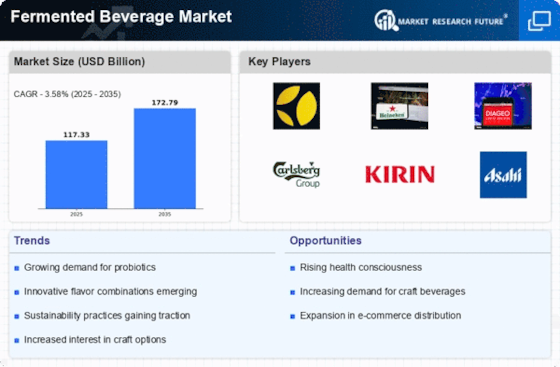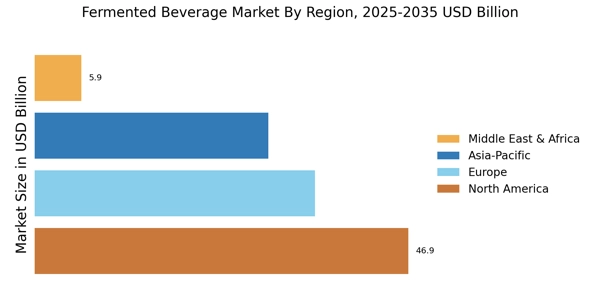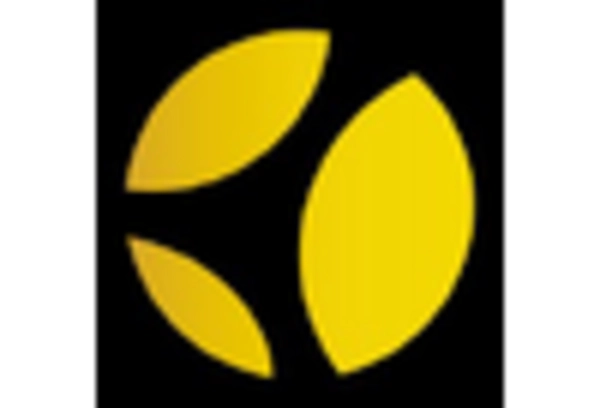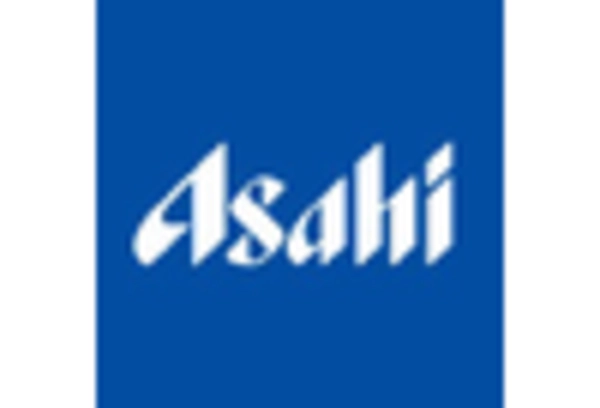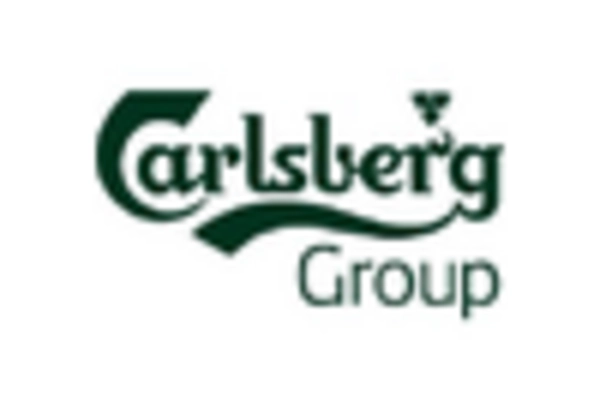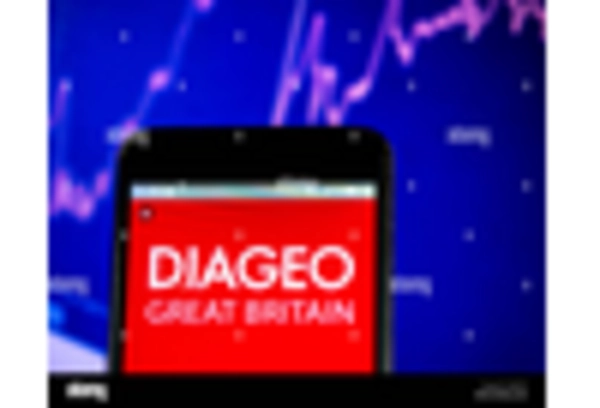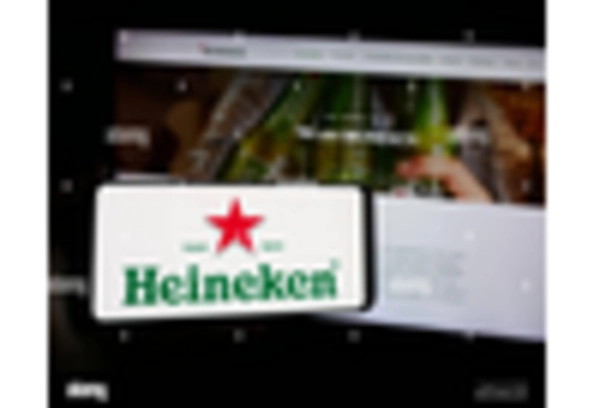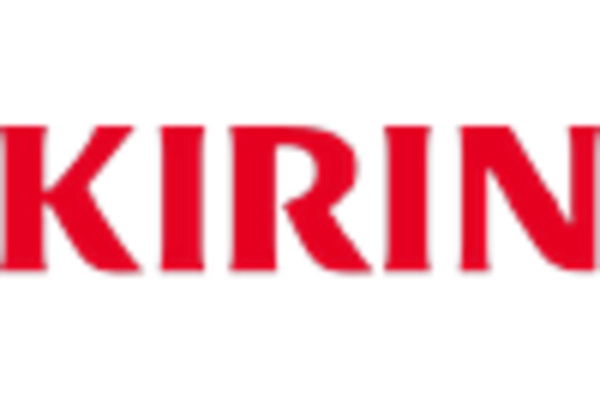E-commerce Growth
The rise of e-commerce is significantly impacting the Fermented Beverage Market. With the increasing preference for online shopping, many consumers are turning to digital platforms to purchase their favorite fermented beverages. This shift is particularly pronounced among younger demographics, who are more comfortable with online transactions. Recent data shows that online sales of beverages are expected to grow by over 15% in the coming years. This trend presents an opportunity for brands to expand their reach and cater to a wider audience. The Fermented Beverage Market is thus adapting to this change by enhancing their online presence and offering direct-to-consumer sales, which could potentially lead to increased market penetration.
Health Consciousness
The increasing awareness of health and wellness among consumers appears to be a primary driver for the Fermented Beverage Market. As individuals seek healthier alternatives to sugary drinks, fermented beverages, known for their probiotic benefits, are gaining traction. According to recent data, the demand for probiotic drinks is projected to grow at a compound annual growth rate of approximately 8% over the next five years. This trend indicates a shift towards beverages that not only quench thirst but also contribute positively to gut health. The Fermented Beverage Market is thus witnessing a surge in products that emphasize health benefits, catering to a demographic that prioritizes nutrition and wellness in their dietary choices.
Sustainability Initiatives
Sustainability initiatives are becoming increasingly relevant within the Fermented Beverage Market. Consumers are more inclined to support brands that demonstrate a commitment to environmental responsibility. This has led to a rise in the use of organic ingredients and eco-friendly packaging among beverage producers. Recent statistics indicate that nearly 60% of consumers are willing to pay more for products that are sustainably sourced. As a result, companies that prioritize sustainability are likely to gain a competitive edge in the market. The Fermented Beverage Market is thus adapting to these consumer preferences, with many brands actively promoting their sustainable practices to attract environmentally conscious consumers.
Innovative Flavors and Varieties
The Fermented Beverage Market is experiencing a notable expansion in innovative flavors and varieties. As consumers become more adventurous in their taste preferences, manufacturers are responding by introducing unique and exotic flavors. This trend is particularly evident in the craft beverage segment, where small-scale producers experiment with local ingredients and fermentation techniques. The introduction of flavors such as hibiscus, ginger, and turmeric not only attracts consumers but also enhances the perceived value of these beverages. Market data suggests that the craft beverage segment is expected to grow significantly, with a projected increase of 10% annually. This diversification in flavor profiles is likely to appeal to a broader audience, thereby driving growth in the Fermented Beverage Market.
Cultural Influence and Globalization
Cultural influences and globalization are playing a pivotal role in shaping the Fermented Beverage Market. The increasing interconnectedness of cultures has led to a greater appreciation for traditional fermented beverages from various regions, such as kombucha from Asia and kefir from Eastern Europe. This cross-cultural exchange is fostering a growing interest in diverse fermentation practices and flavors. Market analysis indicates that the popularity of these beverages is likely to continue rising, as consumers seek authentic experiences and flavors from different cultures. The Fermented Beverage Market is thus benefiting from this trend, as it allows for the introduction of new products that resonate with a diverse consumer base.


